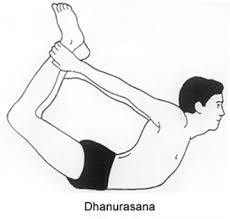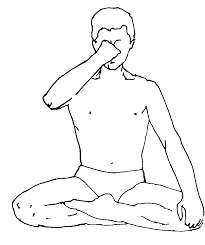Depression In Children
Depression In Children
While most people may think that only adults suffer from depression, it is not uncommon for children to be diagnosed with depression and anxiety. About half of people diagnosed with depression are also diagnosed with an anxiety disorder.
Kashayapa samhita – a classical text of Ayurved is a repository of pediatric specialty. As per the concepts taught in the Kashyapa samhita, Satva (Purity) is responsible for ‘knowledge’, Rajas (passion/activity) is the instigator or creator of all the mental activities while Tamas (the inhibitor) manages or inhibits these activities.
Depression is termed as ‘Vishaada’ or ‘Avasada’ in Ayurvedic texts. Vishaada refers to mental lethargy or inactivity which may arise because of a fear of failure. This lethargy is seen across generally presentations of the person and causes a feeling of sorrow. Another term used in Ayurvedic texts for this is Glani (mental despair).
As per Ayurveda, inappropriate dietary habits such as Adhvashana (Improper foods) and Vishamashana (Opposing foods) may cause Vishada (Mental lethargy) resulting out of Pragya-paradha (mistakes of the intellect/mind).The concept of psychosomatic disorders or Diseases that affect both the body and mind is well documented in the ancient science of Ayurveda

Causes Of Depression In Children
Depression is now increasingly being diagnosed in children and adolescents. While there are no specific risk factors or causes, but following may increase the chances –
- Hereditary:Parent suffering from depression increases the risk in children.
- Gender:While depression affects all ages and both genders, girls have a higher chance of suffering from depression during adolescence.
Symptoms Of Depression In Children
Children having depression can show some or most of the following symptoms :
- Having suicidal thoughts
- Mental irritation
- Loss of interest in hobbies
- Rejection towards life
- Feeling of emptiness
- Poor energy
- Sleeplessness
- Loss of appetite
- Weight loss
These symptoms may generally be seen in young children and adolescents for short time. But, if they last for more than two weeks and interfere with regular daily activities and family and school life, the child should be evaluated for clinical depression.
Ayurvedic Treatment For Depression In Children
Following of the basic lifestyle recommendations as per Ayurvedic texts, will ensure a healthy and happy life.
- Internal medicine
- Medhya rasayan chikitsa
- Satvayavya chikitsa
- Daiva vyapashraya chikitsa
- Shaman chikitsa
- Panchkarma
- Shirodhara
- Shiropichu
- Basti
- Snehan
- Swedan
- Abhyang
- Utavartan
- Nasya
- Basti
- Yoga and Pranayama
- Meditation
- Counselling and psychotherapy guidance
- Mental diet plan
Diet Recommendations (Aahar)
Diet vastly affects the agni, tridoshas and the manas (mind). A wholesome healthy diet is essential for mental health and happiness.
Use of milk, ghee, sweet dish etc influences the Pravar Satva (Higher mental equilibrium). Madhur rasa and amla rasa strength the indriya & positively influences the satva (positive state of mind).
Lifestyle Changes (Vihar)
The Pravar Satva (higher mental equilibrium) is positively influenced by following the principles of Achar rasayan (Good behavior and lifestyle). Yogasanas as exercise regimen are shown to be efficacious and helpful in reduction or management of stress.
Some asanas that are helpful are as follows
- Dhanurasana (Bow pose): Toes the flanks . It relieves stress and fatigue.
- Shavasana (Corpse pose) : Savasana has a regenerative effect on the mind and the body. It provides relief from any kind of stress and strain in few minutes. It is a good activity for managing restlessness, insecurity, frustration, anxiety and fear
- Nadishodhan pranayama (alternate nostril breathing) : Helps in concentration, strengthens the nerves and focuses the mind.
- Bhramari Pranayama (Bee breath) : Paroxysmal gamma waves produced in brain during the Bhramari Pranayama which is associated with positive thoughts, feelings of happiness and acts as a natural antidepressant




